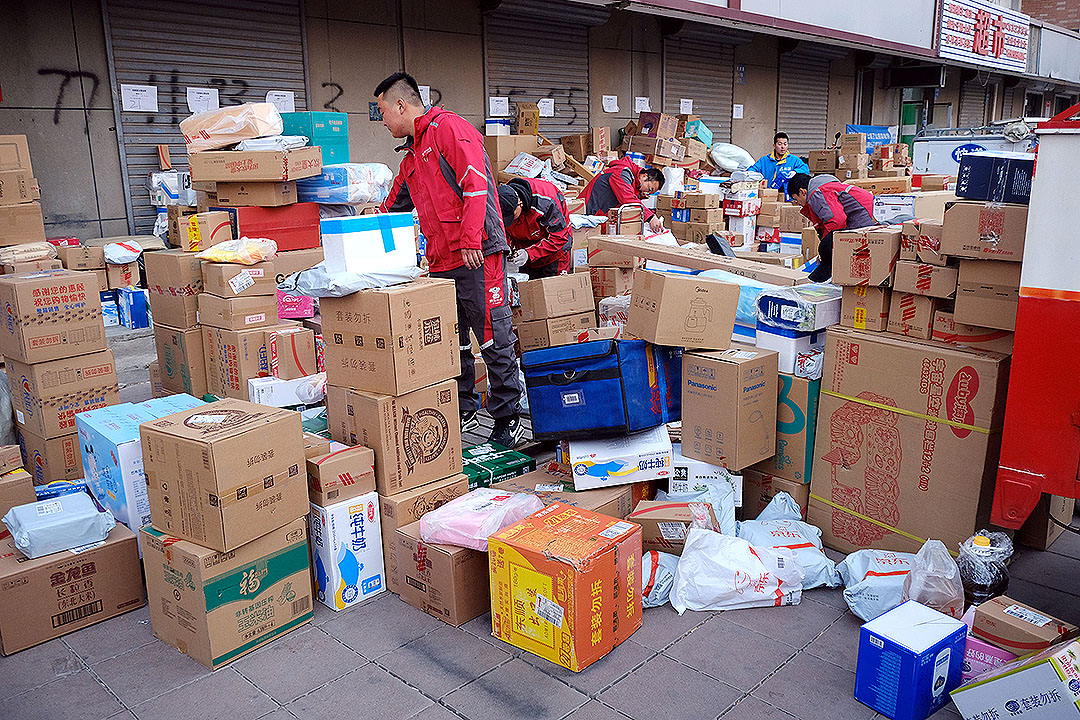Delivering packages for Chinese logistics companies pays terribly, according to new report
China’s ecommerce boom is great for consumers, but the people who do the last-mile delivery put up with miserable working conditions for small salaries.

It is a popular belief in China that package delivery couriers, whose daily toil has helped power the country’s booming ecommerce sector, earn handsome incomes. But in the past few years, there’s been a steady drip of reporting on how the perception isn’t actually aligned with reality: Most workers in the industry are paid very little and treated poorly by their multibillion-dollar employers.
And now there’s some new information about the working conditions of Chinese couriers that really drive home that fact. According to a recent report (in Chinese) by China Post and Express News, a newspaper run by the State Post Bureau, more than half of parcel delivery drivers at Chinese logistics firms earn less than 5,000 yuan ($764) monthly, which is below the average monthly salary in most major cities and nearly half of that in mega-metropolises like Beijing and Shanghai. Only 1.3% of them actually make more than 10,000 yuan ($1,528) a month despite working excruciatingly long hours every single day.
A publication from the State Post Bureau might have an ulterior motive for reporting on poor working conditions at private courier firms, but the research seems solid, and includes a number of other findings about the delivery industry that are not in themselves negative, such as:
- Most couriers deliver fewer than 200 packages per day at the moment, but innovations in last-mile deliveries — such as route optimization solutions and autonomous vehicles — will likely improve their efficiency in a significant way.
- The workforce is mainly made up of young people born after the 1980s.
- Among those who have filed complaints with their employers, more than 70% of them are satisfied with how their complaints were handled.
However, the report doesn’t explicitly touch on a host of major issues facing Chinese couriers and the root of the problem: A 2017 survey (in Chinese) by Beijing Jiaotong University and Alibaba’s research and logistics arms, which questioned over 40,000 couriers across the country, found that nearly a quarter of them work more than 12 hours a day, seven days a week.
This is hard to change, for a few reasons:
- The business model of China’s logistics industry is fundamentally problematic and unfriendly to couriers. Chinese ecommerce behemoths like Taobao run nationwide distribution networks, but for last-mile deliveries, they rely heavily on smaller courier companies that hire and manage their own fleets of drivers.
- These agencies usually sign up couriers as contractors, rather than full-time employees entitled to a minimum wage, overtime, or other benefits like health insurance.
- This murky arrangement has created a fertile ground for exploitative practices and labor disputes.
Deteriorating working conditions have pushed some couriers to take collective action: In October, a loose network of couriers stopped showing up at work in protest of harsh work conditions and unpaid wages. They complained that because they were not directly hired by online retailers like Alibaba, they had no legal protection when labor disputes occurred.
Judging from their profitability and large fundraising rounds, Chinese logistics companies certainly could do something to make life easier for their couriers, but they just chose not to.
- Thanks to China’s ecommerce boom, the package delivery business in the country has been growing at 30% a year, with established players like ZTO Express and SF Express going public on Chinese and overseas exchanges.
- In the first half of 2020, the total volume of express delivery in China amounted to approximately 33 billion pieces, a roughly 22% increase from the same period the year before.
- In jockeying to win over customers, SF Express, China’s second-largest logistics company, kicked off a price war in 2019. Since then, Chinese courier giants have been in a competition to keep delivery prices below what the drivers want, in order to gain market share.
Correction: March 30, 2021
A previous version of this article misstated that JD.com used third-party courier companies for last-mile deliveries, when in actuality the company created its in-house logistics network in 2007, which now employs 190,000 full-time couriers to deliver packages for its ecommerce business. The China Project regrets the error.






